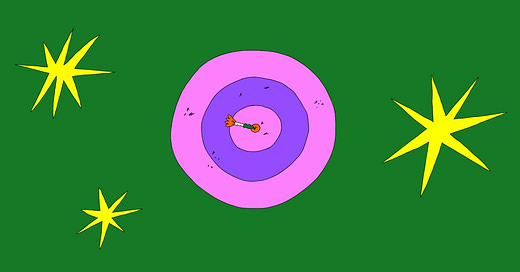The Bad Advice to “Find” Your Passion
Most people don’t fail to find passion. They quit too soon.
“People think that once you find your passion, it’ll provide limitless motivation and smooth sailing. That’s ridiculous. Of course it’s going to be hard.” — Paul O’Keefe
I had just finished my freshman year of college when Steve Jobs gave his famous Stanford commencement address.
“You’ve got to find what you love,” he said. “The only way to do great work is to love what you do.”
It was 2005. I was 18. I had already dropped out of high school to go to photography school and, by that point, was on college #2 (I would ultimately attend five before realizing I needed to stay in one place long enough to graduate).
I wanted so badly to find my “thing.” But nothing I tried felt just right.
Like many Millennials, I equated passion with calling — something I was meant to do. Something I should just know.
So I kept trying things, hoping one would click. Studio photography. Photojournalism. Then journalism. I reported on the weather, community events, even local politics. By the time I graduated with a degree in international affairs, I’d tried so many paths — none of which stuck — that by 21, I had already decided I was a failure.
I wasn’t cut out to be passionate.
But looking back, the problem wasn’t the trying. In fact, experimentation is a key part of discovering what we like and don’t like.
The real issue was my mindset.
I wasn’t just looking for a career — I was looking for something I’d fall instantly in love with and be instantly good at.
There’s even research on this.
A 2018 study by Paul O’Keefe, Carol Dweck, and Gregory Walton looked at two types of mindset: one where people believe passions are discovered, and another where they believe passions are developed. The results were clear: people who believed in the “discovery” model were more likely to give up when things got hard. The spark faded as soon as the novelty wore off.
Which makes total sense.
If you think your passion is just waiting out there — a perfect fit, a destined path — then any struggle feels like a sign: this must not be it.
That’s exactly what I believed back then. And it’s why I gave up so quickly.
When I spoke to Paul O’Keefe, one of the authors of that study, he put it like this:
“If you believe you’re supposed to find your passion, then what that suggests to you is that it already exists… it’s already there. And that all you have to do is uncover it and reveal it.”
But that belief, he told me, is misleading — and harmful.
Because passions don’t arrive fully formed. They’re developed. They grow over time, with care, repetition, and exploration. Even prodigies struggle in the beginning.
And if you think you’re supposed to just know, you’re more likely to walk away the moment it gets hard.
“People think that once you find that passion, it’s going to provide limitless motivation, limitless inspiration, and pursuing that passion will be smooth sailing,” Paul said.
“That’s ridiculous. Of course it’s going to be hard sometimes.”
But if you’re not expecting that — like I wasn’t — you take the difficulty as a sign. A sign that you’re on the wrong path. That maybe you’re not passionate enough. Or maybe you’re just not the passionate type.
The truth? Most people don’t fail to find a passion.
We all have things that spark our interest. What most of us fail to do is stick with something long enough for it to becomea passion.
Because competence matters. Being a total beginner can feel thrilling — but also awkward, exposed, and frustrating. You have to stick with it long enough to get through that discomfort. To find out if it’s something you actually love — or just something you never gave a real shot.
That’s the shift we need to make.
Instead of believing passion is something we discover, we need to believe it’s something we develop.
That means showing up when the spark fades. Pushing through the dip. Letting curiosity lead instead of waiting for certainty. Giving yourself the grace — and the time — to grow into it.
Because passion isn’t just what lights you up.
It’s what you build, piece by piece, when you stop chasing the perfect fit and start committing to the process.
That’s when the fire really starts.





